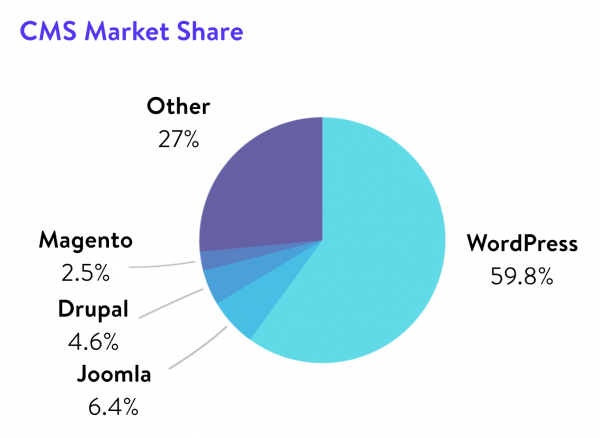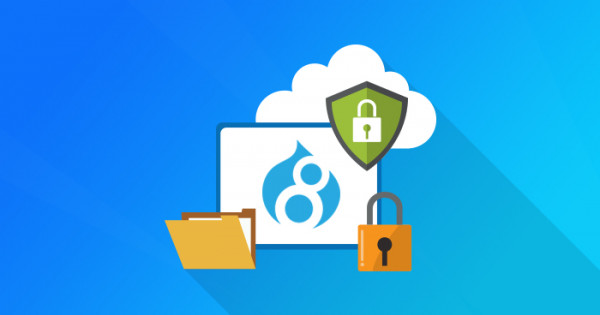Drupal Vs WordPress Comparison: Which one is the Best CMS in 2023?
In an age dominated by online presence, businesses can only ensure profit in continuity if they have a solid digital footprint. It also includes developing a website and choosing the right CMS for business. For CMS selection, Drupal Vs WordPress both are excellent content management systems in this digital era.
Selecting the best CMS can determine the outcome of your venture.
But which cms is better in 2023? Drupal or WordPress. In this article, we will break down the pros and cons of Drupal and WordPress and help you to choose the best cms for your business or organization.
What are CMS and its use?
Before getting into the nitty-gritty, let’s first try to answer the question, “What is CMS?”. Well,
CMS stands for Content Management System and helps manage your site without any coding.
You can easily interact with a workstation to edit text, insert or modify media such as images and video, update various categories, and even manage individual site pages and links1 .
It is a crucial part of any website since not everyone handling a website can be a developer or programmer who can switch things on the fly by messing with the code. Moreover,
A CMS helps with easier SEO optimization.
You can insert and edit stuff like meta descriptions and alt text. So, now you have a definitive answer to the question, “What is a content management system?” Let’s examine whether the Drupal CMS beats WordPress as the best for 2023.
What is Drupal?
Drupal was introduced by Dries Buytaert way back in the year 2000 as a message board. Nevertheless, it did not take long for people to realize that it was a secure way to display a wide range of content with some code modification. One can say that Drupal is a CMS designed by developers for developers.
Therefore,
It takes a bit of technical knowledge to get your hands around Drupal.
It often means that you need to have some coding experience yourself or a developer close by to modify layouts or backend content. But once setting up the initial design and layout, inserting and updating content is pretty straightforward.
Drupal offers a high degree of customization, especially after its Drupal 9 update in June 20202 . The update also eliminates a lot of deprecated code to make it more suitable for dynamic content.
Drupal makes for 2.1% of the websites on the internet, with a market share of 4.6% in conjunction with other systems3 .
Top Websites running on Drupal
Some top organizations that use Drupal as their CMS for their website include:
1. Tesla
2. Viacom
3. Cisco
4. USA Government
5. Pfizer

What is WordPress?
WordPress started as a blogging site back in 2003. With the amount of customization and content support it had, it took only a few years to become a popular CMS platform. Today, more than 62% of all CMS-built websites on the internet feature a WordPress CMS4 .
WordPress is all about simplicity. It has many third-party plugins that can help you attain the perfect aesthetic for your website.
As of 2021, there are more than 53,000 free plugins and 5000+ free themes for WordPress5 . This open-source platform is easy to operate, and you needn’t write a line of code to modify any settings.
Top Websites Running on WordPress
Some of the top websites that run on WordPress include:
1. The Walt Disney Company
2. The New York Times Company
3. TechCrunch
4. Sony Music
5. Forbes
Drupal Vs WordPress: Best CMS 2023
Drupal Vs WordPress. Now that you know what the two types of CMS bring to the table, it’s time to look at various fields to determine the difference between Drupal and WordPress and choose the best CMS, Drupal or WordPress.
1. Installation
In terms of installation, both Drupal and WordPress are very convenient. However, suppose you have the same website you want to create already determined. In that case, you need to use modules with Drupal. It helps with easing off a bit of coding than what you might need with a blank Drupal installation. It is also why this type of CMS needs more space on the disk.

On the other hand,
WordPress is pretty much free-for-all from the get-go.
You can easily install the latest version without a hitch, no matter what kind of website you want. It doesn’t take up much space, and dedicated servers are available at affordable prices from their official website.
2. Ease of Use
Since there is no coding required, WordPress easily wins in this regard.
Anyone with the basics of computer applications can learn how to use WordPress in a flash.
The plugins are easy to swap on the fly. Additionally, you have access to all the database files from the dashboard.
While the dashboard of Drupal is easy to use, it is a pain to set up without any PHP or HTML/CSS knowledge base. Significant changes to layouts or themes also require coding. Although, you should note that it is not a steep learning curve.
Anyone can get the hang of Drupal if they commit to it for a few weeks.
3. Customization
Customization is a tightrope when it comes to Drupal vs WordPress. Both software offers a wide range of customization options. The difference is WordPress is more about easing it off with its vast collection of third-party themes and plugins. You can easily swap to the one that suits your site best.
With Drupal, you can create the exact layout you want for your site without relying on pre-existing templates7.
Sure, some coding is involved, but you achieve the precise vision of your online presence without purchasing any premium skins.
4. Security
Both Drupal and WordPress CMS software fares well when it comes to Drupal vs WordPress security. However, since WordPress uses third-party plugins, there is always a risk of compromising your site access or data. According to Sucuri, 76% of all data breaches occurred on WordPress sites6 .
Not so much in the case of Drupal security.
Sucuri puts total data breaches in 2018 at just 3.7% for Drupal, which has only become more secure since.7
No wonder NASA and many other government organizations use Drupal for their websites. 73% of the top 30 media companies use Drupal because of its security. Hey, that’s what they say themselves.

5. Support
For WordPress, a large online community can guide you through any issue you might encounter for your website.
You may never need to connect with the official WordPress forum simply because it is popular.
On the other end of the spectrum, Drupal has a smaller support base, but they are adept at handling queries. Moreover, the way Drupal is structured allows for easier self-maintenance. Unlike WordPress, where an issue can quickly snowball to grand proportions if not checked.
Drupal Vs WordPress: Which one is better?
To conclude, both Drupal and WordPress are very intuitive and fit different scenarios.
There is no definitive reason to ‘Why choose Drupal over WordPress?’ since either has its own merits.
WordPress security can be an issue but easily countered if you’re careful with your choice of plugins. In contrast, Drupal can provide a more secure option with a more compact package.
If you’re someone who wants a website quickly and easily, without investing too much time and money in coding, WordPress is your best bet. Instead, suppose you want more control over your digital presence and don’t mind learning a few languages along the way. In that case, Drupal will never let you be disappointed.
At Zyxware, we offer a wide range of Drupal development and consulting services, including website design, custom module development, performance optimization, and more. Our team of experienced Drupal developers can help you build a robust and scalable website that meets your specific business needs.



